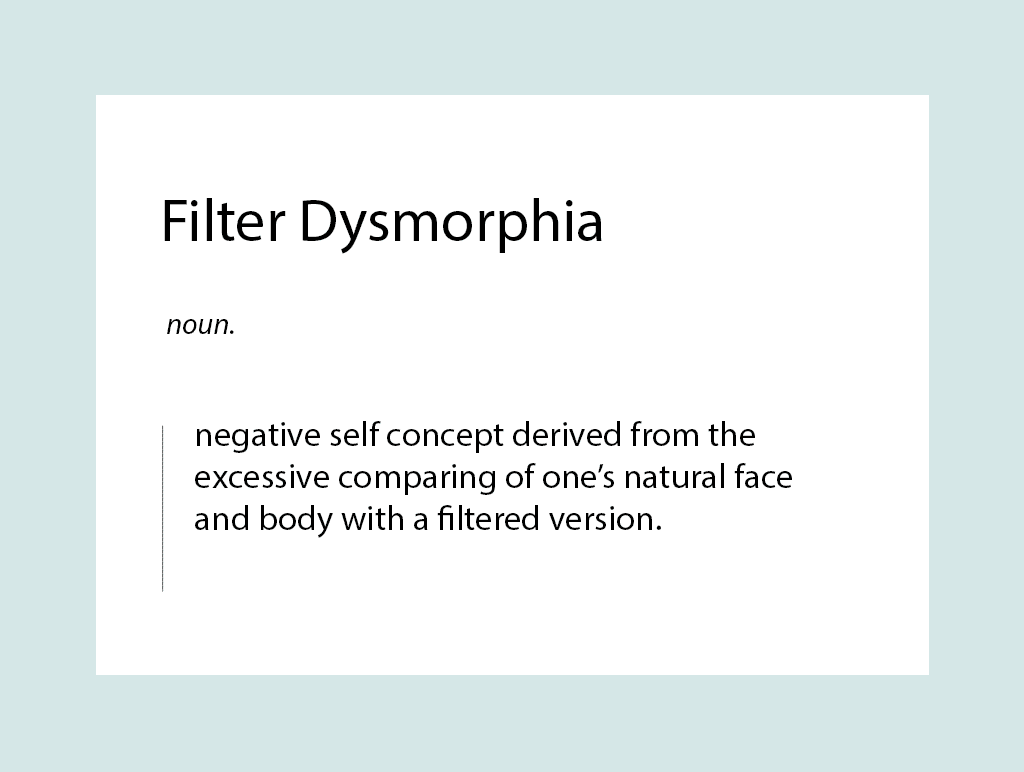Retouched photographs have evolved from airbrushed models in magazines to filtered videos of peers on social media apps such as TikTok. A study found 90% of participants had used a filter to edit their appearance. [1] This can intensify the feelings of inadequacy among youth as they compare altered images of peers online with their real-life appearance.
What’s different about social media is these aren’t just celebrities and supermodels, these are people you know. The feeling of ‘why isn’t that me’ becomes even stronger and more significant.
-Tess Brigham, MFT [1]
As adults, we recognize that these pictures are not only carefully curated, but are also highly edited. Even so, it can be challenging not to feel envy or compare ourselves. If adults with years of experience and maturity struggle to maintain perspective, imagine how these filtered images affect young people.
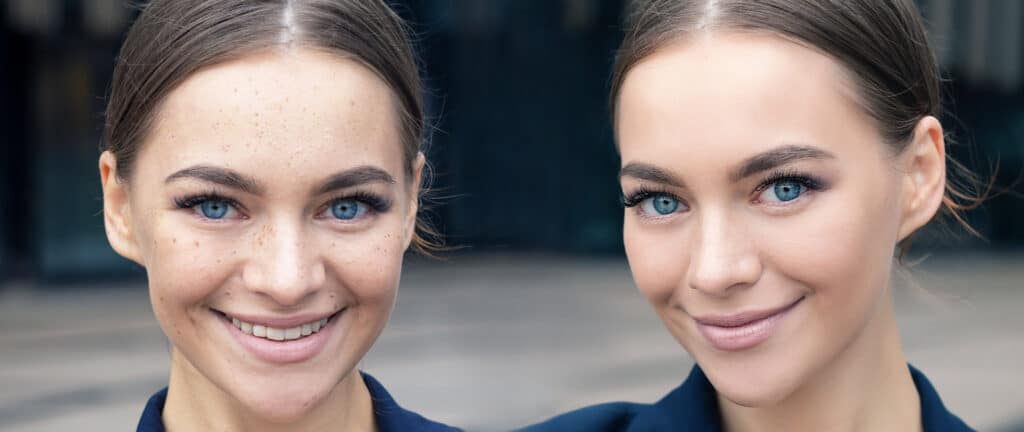
The image on the left is unfiltered while the image on the right is edited.
What are TikTok Filters?
A filter is a photo effect that can be applied to an image or video. Most social media platforms offer an array of filters. Many of these are designed to entertain, such as the Face Switch filter that swaps two people’s faces.
But other filters create a flawless image, distorting reality. When kids perceive these altered likenesses as reality, they are set up to take a hit on their self-esteem.
Filters vs. effects
While often used interchangeably, filters and effects are two different things. Filters are simple photo edits, such as adjusting the color balance or brightness of an image. Effects are used to customize an image with graphics, stickers, or augmented reality. We will use the word filter in this article to encompass both filters and effects.
Using Filters Can Cause a Decline in Mental Health
The Harvard Business Review reports, “Studies have shown that virtually modifying appearance can provoke anxiety, body dysmorphia, and sometimes even motivate people to seek cosmetic surgery.” [5] In fact, these researchers found that use of these filters can actually threaten a person’s core beliefs about themselves. [5]
Filters That Can Harm Children’s Self Image
Within TikTok, there are many different filters to “beautify” the user. Some add make-up or false eyelashes, while others completely change one’s face—a smaller nose, bigger eyes, fuller lips, and smoother skin.
Here are examples of filters that set kids up to be hypercritical of their appearance.
The “Beauty Scanner” filter
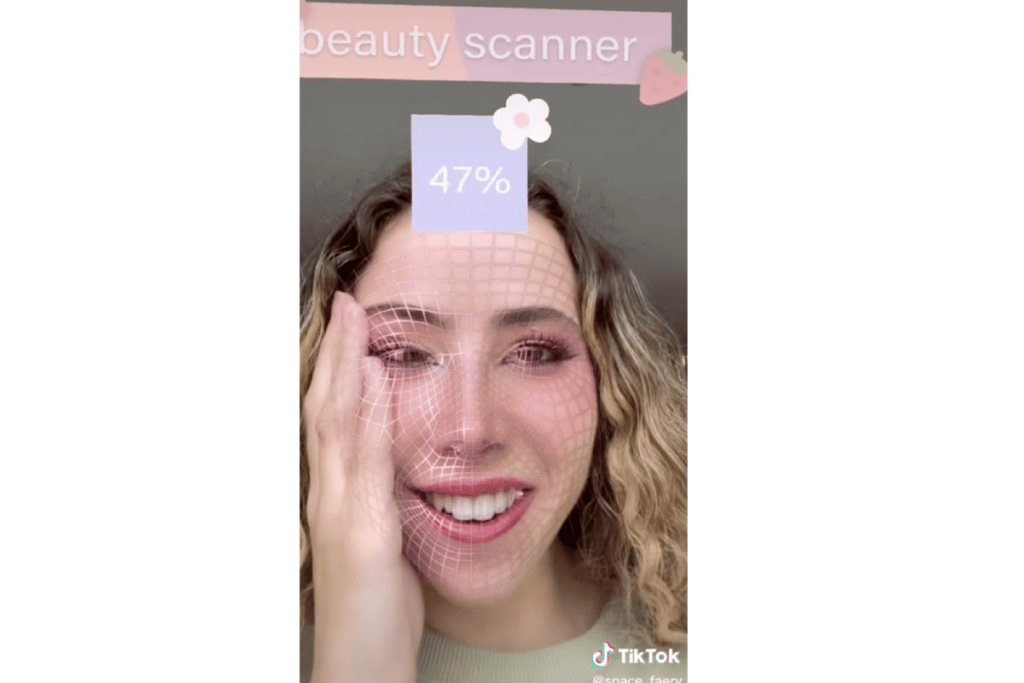
This TikToker uses the “Beauty Scanner” to determine how beautiful the algorithm rates her face.
There are over 13 million views of #beautyscanner videos on TikTok. [7] This filter scans the user’s face and rates their attractiveness from zero to 100%. When the percentage is high, many users shriek with delight and laugh. When the percentage is low, the disappointment on their faces is almost palpable.
The “Worst Features” filter
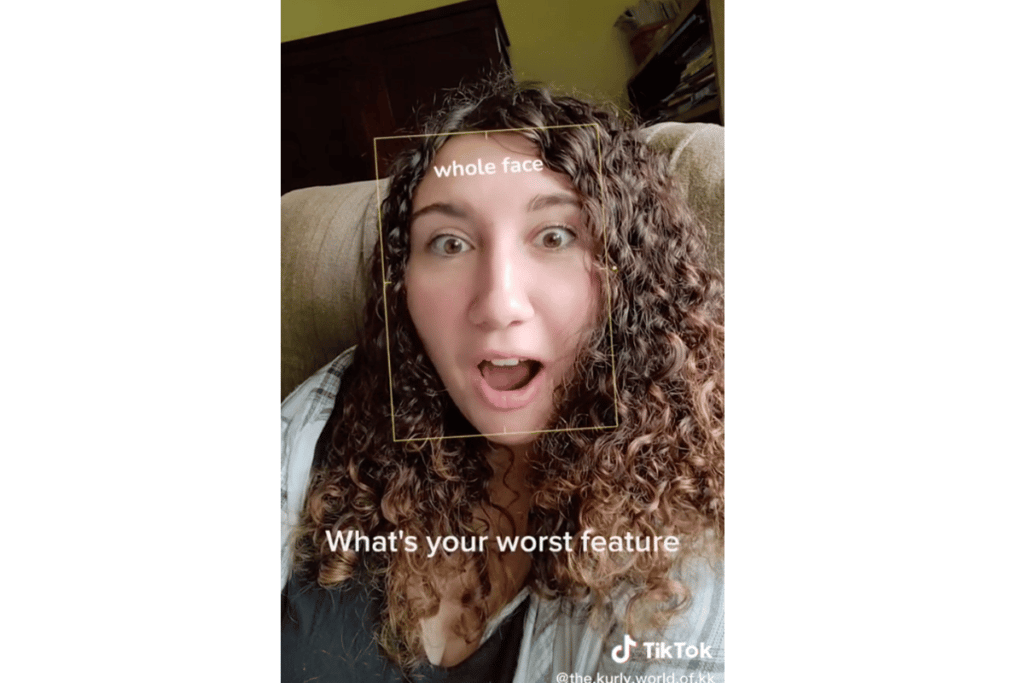
This influencer reacts to being told her “whole face” is her worst feature.
Perhaps one of the most shocking filters is Worst Features. There are several variations of this filter. Essentially, the user’s face is examined and their “worst feature” is pointed out by the filter. Some videos show the results as a nose, eyebrow, or double chin. Some even show the results as the whole face.
Relying on a social media platform’s contrived algorithm to evaluate one’s attractiveness is a recipe for disaster, especially in adolescence.
The “Inverted” filter
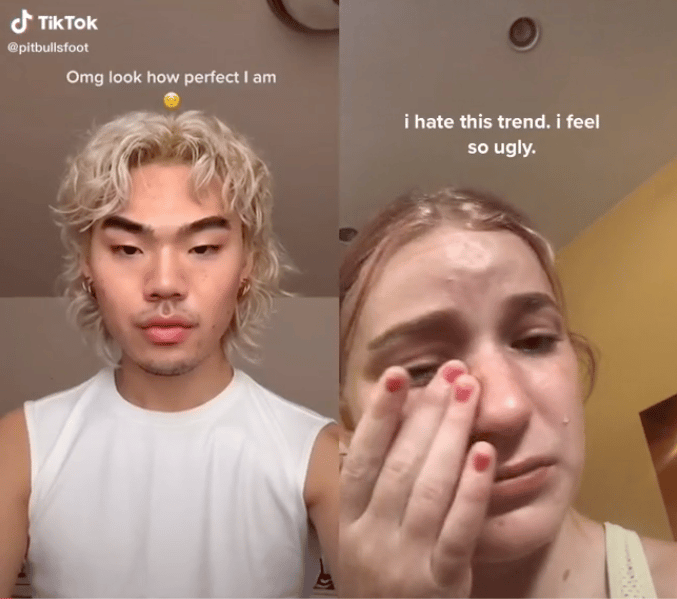
This TikToker is emotional during an “inverted filter” duet comparing the symmetry of her face to another.
This filter supposedly shows the user what they look like to others by flipping the image. We only ever see our faces in the mirror or on camera. We are used to this image of us, but others see us inverted. It can be shocking to see and there are many videos on TikTok of users crying about this new image of themselves. It has led many to fixate on the asymmetry of their faces—we’re told a symmetrical face is a standard for beauty. This filter does little to promote self-acceptance.
The “Face Morph” filter

Playing with the Face Morph filter can seem like a fun pastime. Two images are merged to create a whole other person. Some users merge the faces of two people and claim the result is what their child would look like. But when users start merging their own faces with celebrities, things get dicey. The image of the celebrity is always one found online, meaning it’s highly photoshopped and unrealistically perfect. The resulting image is a more beautiful version of the user, leading TikTokers to feel unhappy and unappreciative of their own beauty.
The “Voice Changer” filter
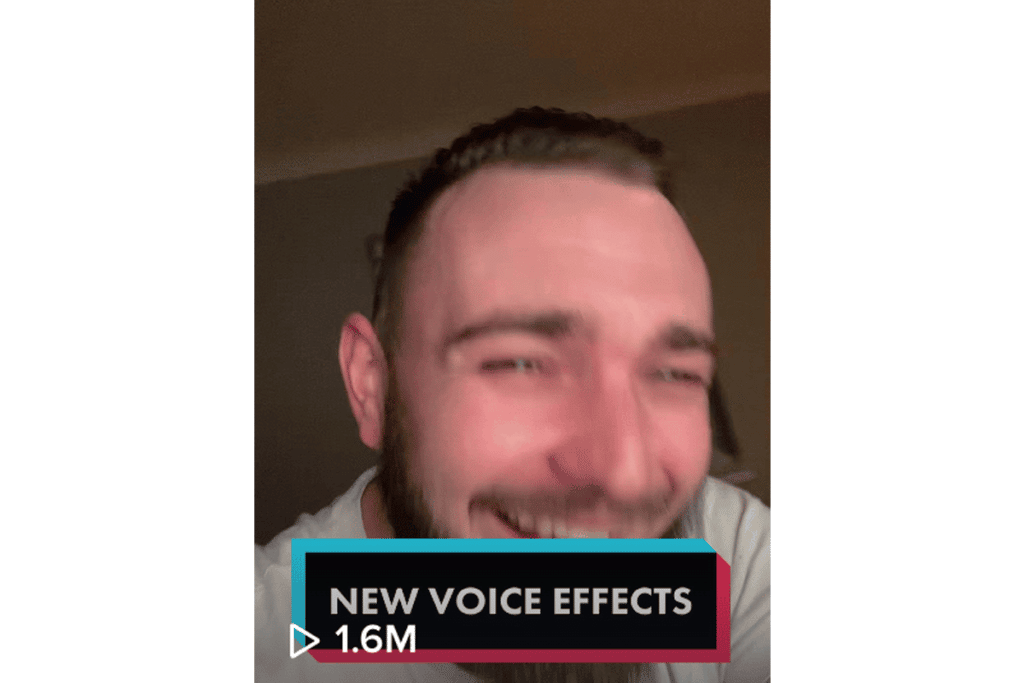
While not a beauty filter, the Voice Changer filter must be included on this list as it can be very dangerous. This filter is added to any previously recorded video and can alter anyone’s voice; these voices range from an old man’s to a little girl’s. This filter is worrisome as predators could potentially use it to talk to our children while pretending to be a peer.
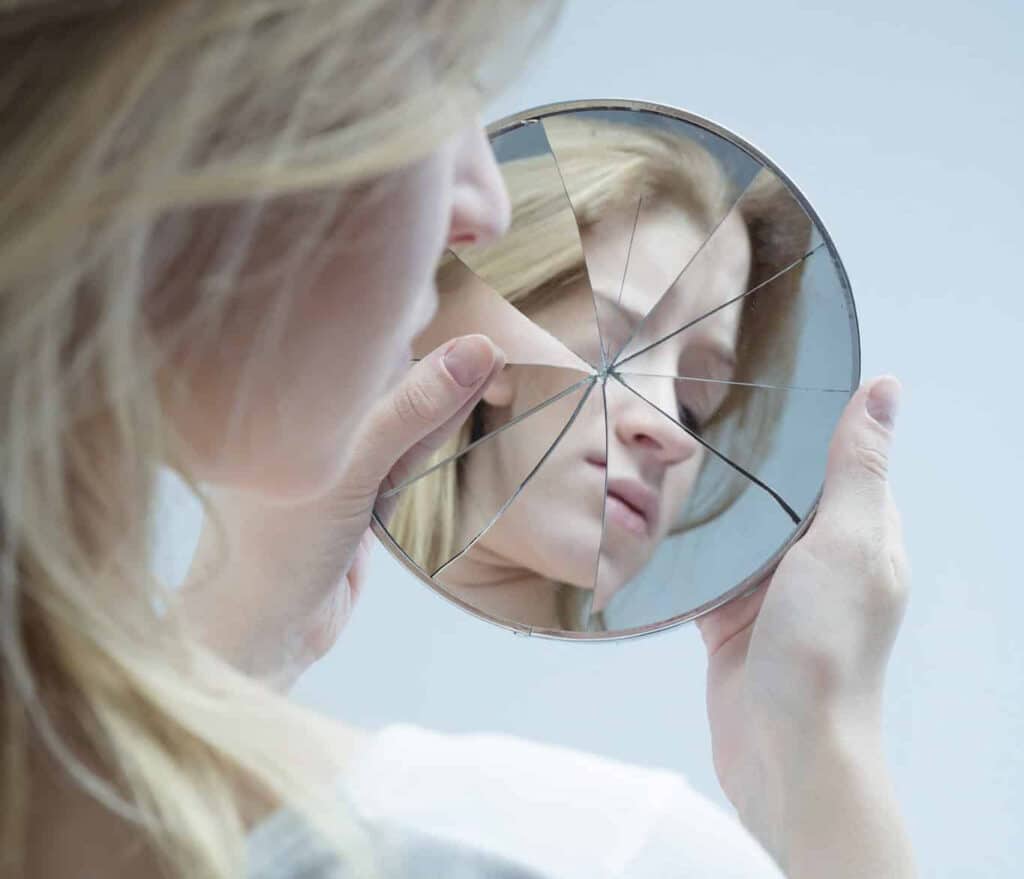
The Effects of Filters on Mental Health
Research shows that young people who use filters often have an increase in dissatisfaction with their face and body. [8] The term “filter dysmorphia” has been coined to describe this obsession with comparing one’s natural face and body with a filtered version. [9]
Young people are not only comparing themselves to celebrities and influencers, they are also comparing themselves to their own doctored selfies. This dissatisfaction with one’s appearance can lead to low self-esteem, anxiety, depression, and even eating disorders. [8]
A primary motivator for patients seeking cosmetic surgery is the desire to look better in photographs. [10] Filter dysmorphia has caused an increase in cosmetic surgery. [11]
Experts explain that filters can trigger a release of dopamine as the user anticipates a possible reward—likes, shares, and positive attention. This can become an unconscious and unhealthy habit as the user seeks validation from outside sources. [13]

This influencer is shocked at how much this beauty filter changed her facial appearance.
What Effect Do Filters Have on Girls?
Researchers found that the majority of girls said they would rather look at real, unedited pictures of individuals like themselves. [2] Girls recognize that no one is perfect, so they find it hard to connect and relate to edited images that seem impossibly flawless. Even so, having that knowledge may not protect them from comparison and envy.
But the media pushes a different narrative. Open any app, magazine or website and we are bombarded with airbrushed models. On TikTok, influencers rely on filters to project their online persona. This constant stream of perfection influences girls to believe these images are how others, especially boys, evaluate them. [2] In an effort to keep up, girls turn to filters in an attempt at idealized perfection.
Beauty filters on social apps are notorious for highlighting Euro-centric beauty features, like lighter eyes, a smaller nose, and flushed cheeks. [3]
What Effect Do Filters Have on Boys?
Most studies overlook the effects of filters on boys. Boys are thought to be protected from aesthetic body ideals because they tend to value body functionality over appearances. However, recent research suggests that the impact of social media on male body image may be underestimated because boys downplay body image issues due to the stigma surrounding it. [4]
For some [users of filters], we found that this augmented self threatens the existing sense of self, negatively impacting their psychological well-being.
–Javornik, et. al, HBR [5]
Parents Can Teach Body Positivity
Parents can help their children combat the negative effects of social media filters. Caregivers can teach kids to recognize the ways filters distort reality, oversee their child’s use of social platforms, and limit access.
When adults try to model body positivity—the belief that a person can have a confident body image despite current social trends—kids notice. Body positivity can help children become self-assured and proud of themselves.
Parents are empowered with many resources today, including books for all ages on body positivity. For younger children, consider Her Body Can and Bodies Are Cool. Pre-teen and teens may benefit from The Body Image Book for Girls and parents can learn from Raising Body Positive Teens.
Parents may choose to follow the growing number of body positive influencers such as Beauty Redefined and share relevant posts with their children. For older teens who are ready for social media, parents can encourage them to follow body positive and uplifting influencers.
When our child is struggling with body image or mental health, we can know we are not alone. Physicians and mental health providers are there to support our families.
How To Remove Filters on TikTok
Parents can encourage their kids to turn off filters to see the difference between edited and realistic images, and share their authentic self online. This may take diligence, as users find if they turn off TikTok’s built in “beauty filter,” it will be back on next time they log in.
How to remove TikTok effects
- To remove effects, click on the “+” on the bottom of the screen.

- Click on effects on the bottom left of the screen.
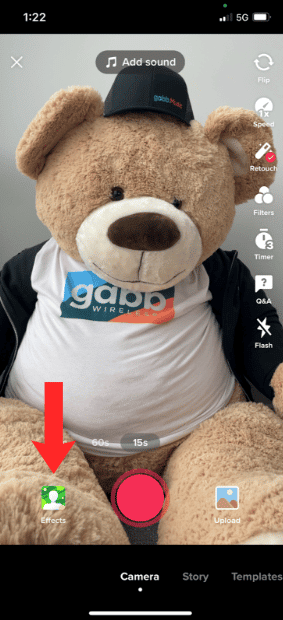 <
< - Click on the circle with the diagonal line through it.
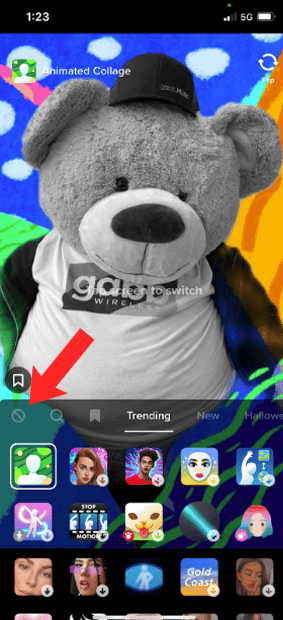
How to remove TikTok filters
- To turn off filters, tap on the “+” on the bottom of the screen.

- Click on filters on the right side of the screen.
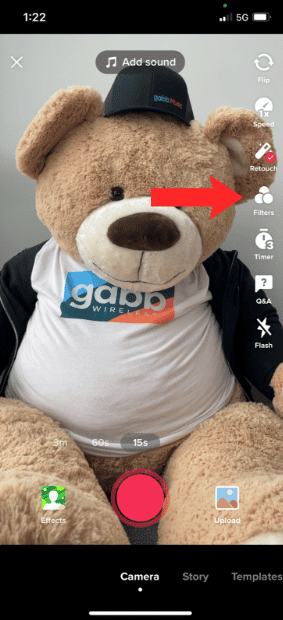
- Click on the circle with the diagonal line through it.
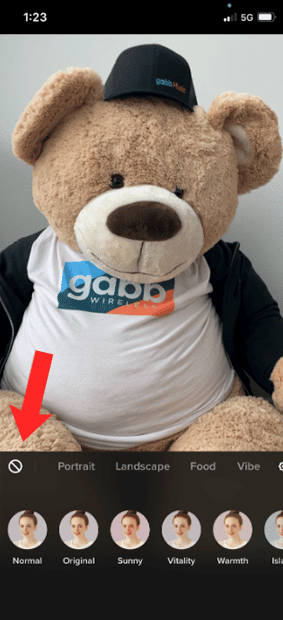
How to disable TikTok’s beauty filter
- To remove TikTok’s built in beauty filter, click on the “+” on the bottom of the screen.

- Tap retouch on the right side menu to uncheck the beauty filter.
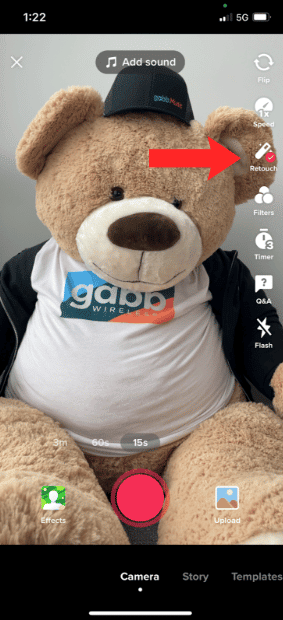
Although TikTok has some parental controls, there is no setting that allows parents to turn off filters. As parents, we can educate our children on the harmful effects of filters, have regular conversations, and encourage them to live a more authentic life.


